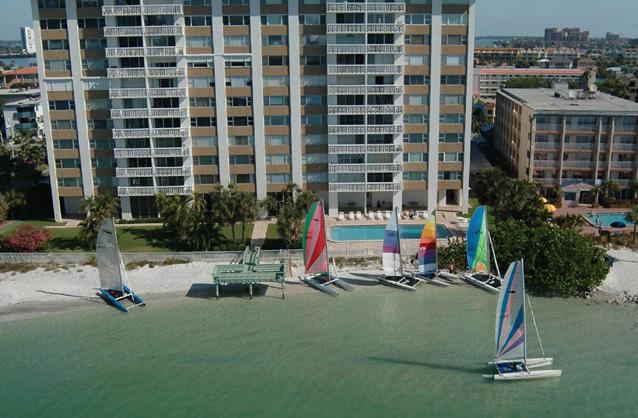Timeshare is a concept that allows vacationers to prepay their future holiday lodging at today’s prices, without the financial burden of owning an entire second home.
If you’ve ever vacationed at a resort, whether you were on your honeymoon or simply enjoying a much-deserved holiday – you probably ran across those incredibly persuasive salespeople offering free breakfast or lunch, or even a complimentary day trip, in exchange for a couple of hours of your time.
During these free meals or excursions, they would go on at great length about the wonderful world of timeshares or vacation clubs. As you sipped your orange juice or played with your napkin, these professional sellers would try to convince you to purchase a week – or more – in a nearby resort.
Disney’s Vero Beach Resort
Over time, vacationers divided into two groups – those who avoided those free breakfasts at all costs and others who scooped up every freebie offered, determined not to be tempted by the timeshare spiel.
Those high-pressure sales tactics often led to confusion and misconceptions about the timeshare industry. Is it really a good investment? Can I rent out my timeshare? What about additional fees? These are the types of questions leery prospective buyers would ask – and they wouldn’t always be satisfied with the answers.
Over the years, timesharing’s reputation has improved thanks in part to the participation of leaders in the hospitality industry, such as Marriott, Disney and Hilton. Higher standards in accommodations, improved quality and service and greater flexibility have improved the industry’s overall image.
Today, timeshares make up the fastest-growing segment of the travel and tourism industry, with sales volumes projected to reach $4 billion in 2000 and an annual growth rate between 14 and 17 per cent, according to the American Resort Development Association (ARDA).
The concept of timeshares (also referred to as vacation ownership) has been around since the early 1960s. In 1980, 155,000 families owned timeshares at about 500 resorts worldwide. Today, there are nearly five million families who have invested in timeshares at more than 5,000 resorts. With more than two million owners, the United States is considered the world leader in timeshares with an average net selling price of $10,537 per unit-week.
What is it?
Most commonly, timeshare works by dividing a property into usage intervals, typically 50-51 weeks a year (one to two weeks are held back for maintenance). These weeks are sold as deeded interest or right-to-use, giving the owner the ability to use the weeks they purchased on a yearly basis.
Some resorts offer a deeded interest providing a deed as in any other real estate transaction, which can be used and passed on in perpetuity. Other resorts offer a right-to-use agreement that provides usage rights for a predetermined period of time. Typically you buy the number of weeks you plan to use. You then pay a yearly maintenance fee for the upkeep of the property, based on how many weeks you purchased.
Of course, timesharing’s appeal has a lot to do with its many conveniences. You only buy the period of vacation time (your share) that you can realistically use each year, you enjoy the comforts of home not found in most hotels (e.g. full-equipped kitchens, laundry facilities, multiple sleeping accommodations, playgrounds), and you can exchange your week for a timeshare in another state or country.
Florida ranks high
Interval International, a company specializing in vacation exchanges, released its Vacation Ownership 2000 (VO2000) study last year, which assessed the travel habits, preferences and intentions of consumers interested in vacation ownership. According to the study, the vacation ownership market is made up primarily of families of four or more who are interested in two-bedroom units.
Beach destinations within Florida rank highest on the list of preferred locations. Within the U.S., Florida leads the pack in terms of timeshare development, thanks to its climate, excellent transportation access, extensive beaches and theme parks, and development-friendly land.
Timeshares are purchased in various time allotments: fixed weeks which limit owners to the same week, time and unit each year; seasonal floating weeks; year-round floating weeks; or vacation time based on a points system. Some resorts allow timeshare owners to split their weeks into several short stays of less than seven days. Biennials let owners purchase timeshares for use every other year.
Part of owning a timeshare means paying maintenance fees toward the property’s upkeep. According to Timeshare and Vacation Ownership Review (1998), average annual maintenance fees for Florida timeshares were $350.
Long-term timeshare ownership is said to offer substantial savings over renting. By prepaying future accommodation expenses at current prices, owners save on the cost of future vacation lodging. They simply take money they would spend anyway on renting a hotel room and apply it towards ownership.

